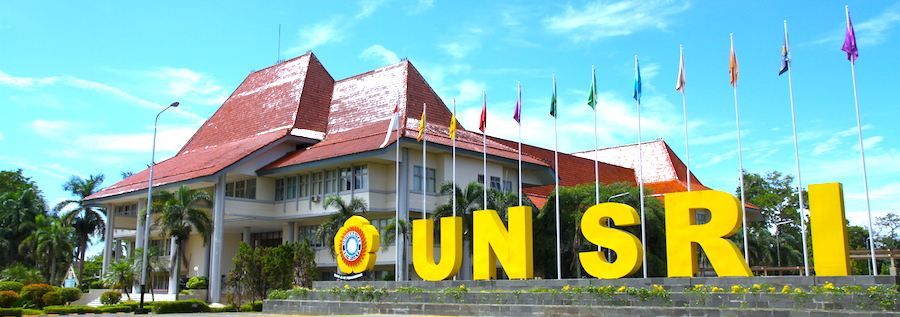Vision and mission UNIVERSITAS SRIWIJAYA

One of the goals of higher education is to produce graduates who can carry out development in accordance with national development needs. Because the needs of national development are not static, meaning that they will always change according to changes in regional and global situations, tertiary institutions are also required to always change and adjust to changes in needs and development, in addition to adjusting to the development of science, technology, arts and world information. This is the main challenge faced by Indonesia's higher education entering the XXI century, which will begin with the era of free competition and opening regional market (AFTA) and subsequently the free competition and openness of the Asia Pacific market (Asia Pacific Economic Coorporation: APEC) in 2020. Demand to attend education at Unsri from prospective foreign students has begun to increase in recent years. This is an encouraging phenomenon as well as a challenge. "Encouraging", because Unsri has begun to be taken into account as a quality tertiary institution to be in demand by prospective students from abroad. "Challenges", because this requires improvement, improvement and development of institutions in all aspects so that UNSRI's academic standards are truly equivalent to universities abroad at least in the regional region. In the XXI century Higher Education in Indonesia including UNSRI must be able to produce higher quality graduates and be able to play a role in global society. This requires an increase in the number, quality and non -academic and non -academic facilities in line with efforts to improve organizational administration and management. In an effort to prepare themselves to face the challenges of this XXI century, Unsri has conducted an internal environmental assessment to see strengths and weaknesses, and external environmental assessments to see opportunities (oppurtunities) and challenges (threat) to be faced. From this SWOT study formulated the vision, mission and purpose of Unsri to face the XXI century. Vision Unsimaj became a leading and research -based tertiary institution in various fields of science and technology. Unsri Mission Mission to realize the vision of Sriwijaya University includes: organizing and developing higher education in an effort to produce educated people who can apply, develop, and/or create knowledge, technology, and/or art. community. Organize the development and development of talent, interests, reasoning, and student welfare. Conduct cooperation with other institutions, both national and international. Create a professional, effective, efficient, and accountable management system. The purpose of the unsrima to produce graduates who are of good quality, noble, independent and mastering science, technology, sports and arts. Producing superior science and technology, appropriate through innovative research. Increasing the participation of Srivijaya University in solving social problems and development through continuous community service. Create academic atmosphere to encourage creative students, adaptive and and international in an effort to develop science, technology, sports and arts. Improve the quality of management systems that are professional, efficient, effective, transparent, and accountable. The target of the implementation of the quality, efficient and productive teaching and learning process by implementing a relevant curriculum and referring to the Indonesian National Qualification Framework (KKNI), contains the uniqueness/scientific superiority of Sriwijaya University, and supported by information technology. accommodate Sriwijaya University in education, especially for prospective students from poor families and or originating from remote areas. and the integration of the planning and budgeting process. Financial Report BLU Sriwijaya University received WTP opinion from external auditors (BPK and KAP). Increasing the effective, efficient, integrated, relevant and sustainable management service process.
